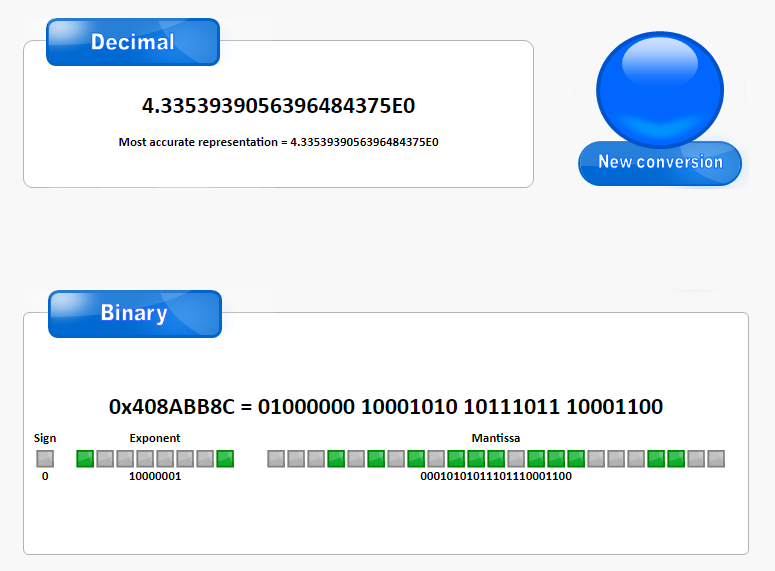I try to convert the binary value
01000000 10001010 10111011 10001100to the value 4.33.
Also see the example:
 Reproducable on this site:
Reproducable on this site:
http://binaryconvert.com/result_float.html?hexadecimal=408ABB8C
Is this doable in FME? And how?
Thanks!
Best answer by ebygomm
View original







